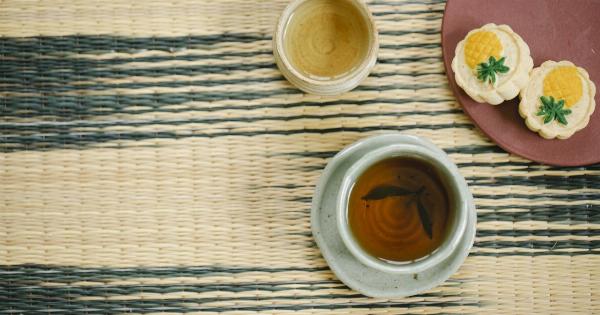Coffee and tea are the two most commonly consumed beverages in the world. Both drinks have their own sets of health benefits as well as risks. Here, we take a closer look to determine which one may be better for you.
Health Benefits
Coffee
Coffee is high in antioxidants and contains caffeine, which can help improve energy levels, focus, and mental alertness.
Regular coffee consumption has also been linked to a reduced risk of several diseases, including type 2 diabetes, Parkinson’s disease, liver disease, and some types of cancer.
However, coffee can also lead to negative health effects such as increased heart rate, jitters, and anxiety. It can also disrupt sleep patterns and increase acid reflux symptoms in some individuals.
Tea
Tea is also high in antioxidants and contains compounds called catechins, which have been linked to a reduced risk of heart disease, stroke, and certain types of cancer.
Tea also contains L-theanine, an amino acid that can help improve mood and reduce stress levels.
On the other hand, tea can also have negative health effects, including increased risk of kidney stones and decreased iron absorption when consumed with meals.
Caffeine Content
Coffee
Coffee contains more caffeine than tea, with an average 8-ounce cup containing 95 mg of caffeine. This can vary depending on the type and preparation method of the coffee.
Tea
Tea typically contains less caffeine than coffee, with an average 8-ounce cup containing 47 mg of caffeine. However, this can also vary depending on the type of tea and the length of the steeping time.
Sugar and Calorie Content
Coffee
Coffee on its own is calorie-free and contains no sugar. However, many popular coffee drinks such as lattes, cappuccinos, and mochas can contain high amounts of added sugar and calories.
Tea
Tea on its own is also calorie-free and contains no sugar. Many teas, particularly herbal teas, can be enjoyed without any added sweeteners. However, some bottled teas and sweetened tea varieties can be high in sugar and calories.
The Verdict
Ultimately, whether coffee or tea is better for you comes down to your personal health goals and preferences. Both drinks have their own set of health benefits and risks, and moderation is key to mitigating any potential negative effects.
If you’re looking for an energy boost or mental alertness, coffee may be a better choice due to its higher caffeine content. If you’re looking for a calming drink that can help improve mood and reduce stress, tea may be a better option.
Both coffee and tea can be enjoyed as part of a healthy diet when consumed in moderation and without added sugars or other unhealthy additives.





























